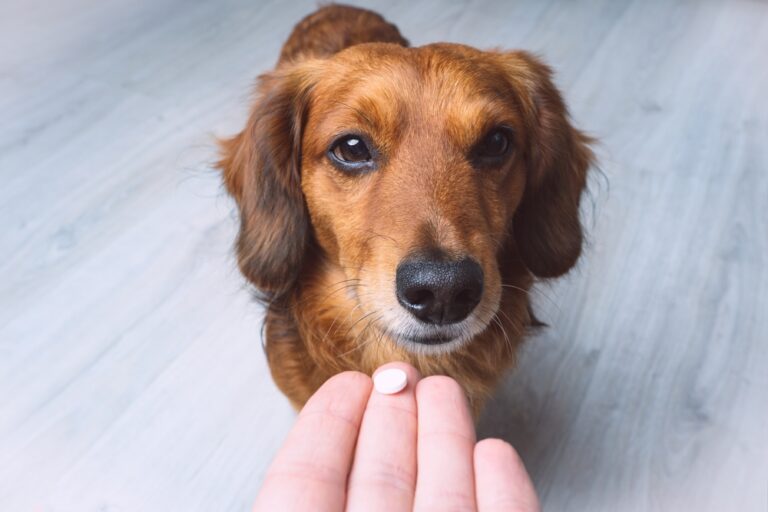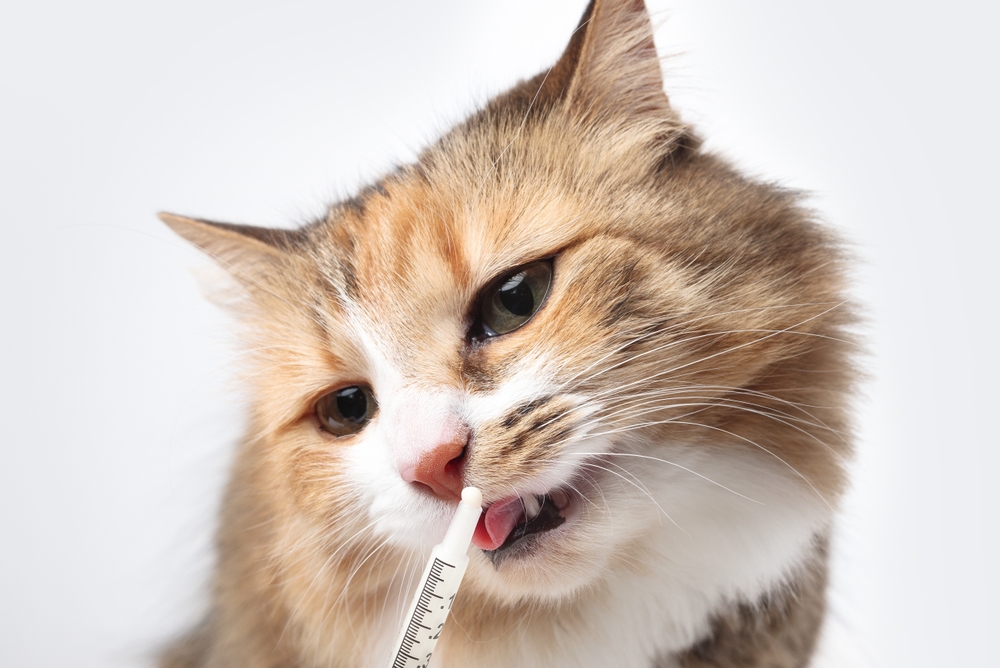
Some pets gladly accept medications, but others can put up a fight and make medicating them a stressful experience for everyone involved. But, it doesn’t have to be. The Urgent Pet Care Omaha team understands that all pets are different, which means pet owners must adjust their medication strategies. Here is our guide to a painless pet medication process with tips and tricks for various medication types.
1: Hide oral pet medications in tasty treats
One of the simplest and most effective medication administration methods is to conceal pills in tasty treats. Highly food-motivated pets will gladly accept the treat despite the pill, and will come running when they hear a pill vial. Skeptical pets may see through this trick unless you find a treat they can’t resist, such as tuna for cats or liver sausage for dogs. Don’t be afraid to get creative, but avoid toxic food ingredients, such as chocolate or xylitol. Commercial pill pockets and wraps are additional options.
2: Mix medications into wet food
Pets who spit out pills may accept medications that are mixed into liquid or creamy foods, such as canned pet food, applesauce, or peanut butter. If the pills don’t have a bitter taste, you can crush the medication into a powder with a pill grinder, or open up powdered capsules and mix the medication into their food.
3: Use liquid pet medication formulas
Liquid medication formulations are another good option for finicky pets. Liquids work best for small pets, because the volume that large pets require often is too much to reasonably administer in an oral syringe. Only select medications are available in liquid formulations, but you can try administering a crushed pill mixed with water the same way as a standard liquid.
4: Employ positive reinforcement pet training techniques
Teach your pet to associate medication time with positive experiences by offering praise, treats, brushing, extra cuddles, or anything else that highly motivates your pet before and after administering medication. Positive reinforcement, coupled with a predictable medication, means many pets learn to look forward to medication time and will remind you their treat is due when you’re running behind schedule.
5: Learn gentle pet restraint
Gentle restraint can help you administer medications safely, quickly, and with minimal stress. Wrap your pet in a towel or blanket, approach them from behind instead of head-on, or ask a family member to administer a gentle hug, which can help you control your pet’s movements without them feeling trapped or upset. If you are concerned you may not administer a medication correctly at home, we will show you the gentle restraint techniques. In addition, we can demonstrate techniques for administering eye, ear, topical, and oral medications.
Medication compounding involves taking medication in one form—usually a powder or capsule—and making it into another form, such as a chew or liquid. Compounding is useful when a pet requires medication that isn’t commercially available or is available only in too-large doses. Compounding, which often involves dissolvable tablets, transdermal gels, or palatable chews, can also come in handy for particularly difficult-to-medicate pets. However, compounded drugs are made to order and aren’t tested routinely for potency, so may not be as effective as other choices.
With patience and creativity, you and your pet can enjoy a smoother and more manageable medication process. By incorporating our Urgent Pet Care Omaha team strategies into your routine, you can simplify medication time and boost your pet’s well-being. Contact your primary veterinarian for individualized medication advice and your pet’s routine care needs. Contact us or stop in during business hours if your pet needs urgent veterinary care.

6: Ask for compounded pet medications
Medication compounding involves taking medication in one form—usually a powder or capsule—and making it into another form, such as a chew or liquid. Compounding is useful when a pet requires medication that isn’t commercially available or is available only in too-large doses. Compounding, which often involves dissolvable tablets, transdermal gels, or palatable chews, can also come in handy for particularly difficult-to-medicate pets. However, compounded drugs are made to order and aren’t tested routinely for potency, so may not be as effective as other choices. With patience and creativity, you and your pet can enjoy a smoother and more manageable medication process. By incorporating our Urgent Pet Care Omaha team strategies into your routine, you can simplify medication time and boost your pet’s well-being. Contact your primary veterinarian for individualized medication advice and your pet’s routine care needs. Contact us or stop in during business hours if your pet needs urgent veterinary care.

